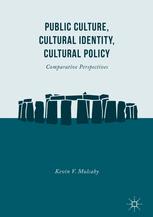

Most ebook files are in PDF format, so you can easily read them using various software such as Foxit Reader or directly on the Google Chrome browser.
Some ebook files are released by publishers in other formats such as .awz, .mobi, .epub, .fb2, etc. You may need to install specific software to read these formats on mobile/PC, such as Calibre.
Please read the tutorial at this link: https://ebookbell.com/faq
We offer FREE conversion to the popular formats you request; however, this may take some time. Therefore, right after payment, please email us, and we will try to provide the service as quickly as possible.
For some exceptional file formats or broken links (if any), please refrain from opening any disputes. Instead, email us first, and we will try to assist within a maximum of 6 hours.
EbookBell Team

4.4
12 reviewsThis book places the study of public support for the arts and culture within the prism of public policy making. It is explicitly comparative in casting cultural policy within a broad sociopolitical and historical framework. Given the complexity of national communities, there has been an absence of comparative analyses that would explain the wide variability in modes of cultural policy as reflections of public cultures and cultural identity. The discussion is internationally focused and interdisciplinary. Mulcahy contextualizes a wide variety of cultural policies and their relation to politics and identity by asking a basic question: who gets their heritage valorized and by whom is this done? The fundamental assumption is that culture is at the heart of public policy as it defines national identity and personal value.